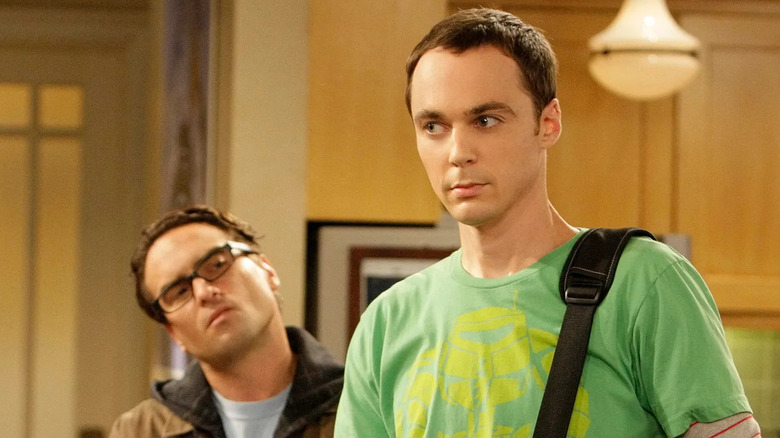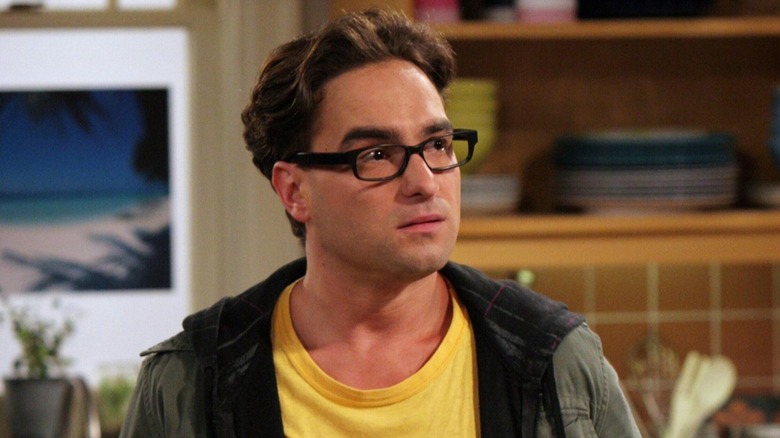The Big Bang Theory Creators Wanted To Break The Media's Image Of A 'Nerd'
"The Big Bang Theory" is best known as one of the more popular sitcoms of the modern era, with rating highs that few network shows see today, especially in a world where streaming services exist. But it was also something different because its main characters were brainy, nerdy, and antisocial misfits, which wasn't really something that television had delved into at the time. Well, at least in a way that was flattering for nerd culture. And while "The Big Bang Theory" did poke fun at its characters from time to time, it also treated them as complex characters capable of growth while still being fundamentally nerds at the end of the day.
Obviously, this is a strategy that worked well for the comedy series, as it ran for 12 seasons. It might have gone on for even longer — after all, its real reason for ending had less to do with declining ratings, and more to do with star Jim Parsons' desire to move on to other projects. While some fans may believe its portrayal of nerd culture is nothing more than a happy accident, the reality is that the creators of the series, Chuck Lorre and Bill Prady, deliberately wanted to make efforts to change the world's perspective of the subculture.
The Big Bang Theory creators wanted to showcase the struggles of nerds
During an interview with Entertainment Weekly for the show's 15th anniversary in 2022, "The Big Bang Theory" creators Chuck Lorre and Bill Prady discussed the series at length, including what inspired them to center it around a group of nerds and nerd culture in general. For the duo, it was about showcasing the struggles that nerds go through while making it relatable to a more general audience of television viewers, and changing the way the media portrays them.
"These characters were struggling to participate in the world and it was hard and even painful to do so," Lorre said. "That's something we've all felt and can understand. I think most people can identify with it on some level, that alienation, even popular people." Prady expanded on this, drawing on his own past experiences as a nerd. "To me, as someone who worked on computers and was in that world, the depiction media gives of the 'nerd' world is very homogenous," he said. "But to me, it was the most interesting place. People had interests in random things like Tuvan throat singing and they'd want to tell you all about them."
This approach certainly makes a lot of sense. Pop culture can be the perfect place to try and alter perspectives and offer a fresh interpretation of outdated stereotypes. The fact that Lorre and Prady decided to tackle nerd culture in a more empathetic and conscious way surely helped the popularity of "The Big Bang Theory." It also probably doesn't hurt that one of the creators already has a deep connection to nerd culture already, giving the series even more credibility and authenticity.

